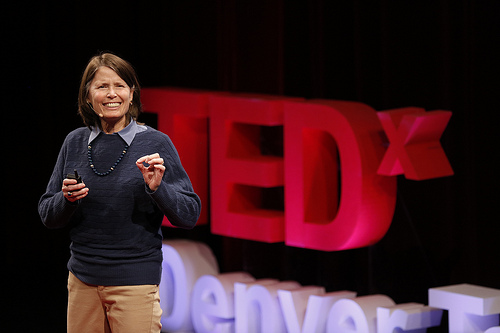What Does TED Do with the Money They Make?
TED is a hugely successful not-for-profit organization which is devoted to the concept of ‘Ideas Worth Spreading’. After initially starting up in 1984 as a conference to bring together professionals from the worlds of Technology, Entertainment and Design, it has grown rapidly. With this growth costs have also increased. It is hard to see what TED actually do with the funds they make but as a non-profit organization there is an explanation for every penny.
In addition to their TED conferences the company has grown significantly enough to also offer TEDGlobal, TED Talks, TED Conversations and much more. There is even an annual TED prize.
The non-profit status that TED has already explains that they have no money as revenue. They are able to attract big sponsors to ensure their events are bigger and better every year and not to line their own profits, but what exactly does the company spend their money on?


TEDx Denver Teachers by ColoradoAcademy1, on FlickrThis work is licensed under a Creative Commons Attribution-NonCommercial-ShareAlike 3.0 Unported License.
Bandwidth and Support
TED is a massive organization that runs a range of popular and expansive online enterprises. From TED Talks to TED Fellows and much more, all of these products require their own internet space and usage and generate their own costs. For sure they don’t use a simple accounting software such as Intuit to manage their costs and expenses. Similarly, the company is dedicated to providing support to those who use their services, including TEDx organizers worldwide and their developing TED-Ed project. These support and bandwidth-heavy services obviously come with a cost.
Staff
Although TED is a not-for-profit organization, that doesn’t mean that their staff are volunteers or unwaged. Staff are required across many areas of the business and the cost of conference tickets and other services are in some way involved in ensuring that everyone receives fair and adequate pay. For the company to continue to succeed in the way it is doing they need to be able to attract experienced, quality staff.
Choosy with Good Reason
TED are very specific about the companies they allow to sponsor their conferences and this works in their favor as it shows they have a conscience and are interested in ensuring only relevant sponsors and fundraisers are chosen. Alcohol companies for example aren’t allowed to sponsor TED events, and this is also true of companies that don’t match their company ethos. This counteracts the opinion that TED may be trying to create profits, as if they were then they’d take sponsorship regardless of morals.
The benefits you can reap from attending a TED conference are sufficient enough for most people to justify the cost. Money made by the firm is immediately reinvested to ensure they can keep afloat and keep developing to our advantage. If you enjoy the services and products offered by TED and they are giving you something you couldn’t otherwise get then you have to accept that to run a creative, proactive organization such as TED takes a certain amount of funding.
As a not-for-profit organization focused on simply developing their customer experience and making it better, it is clear that TED’s money is being used in positive ways that will benefit everyone.

